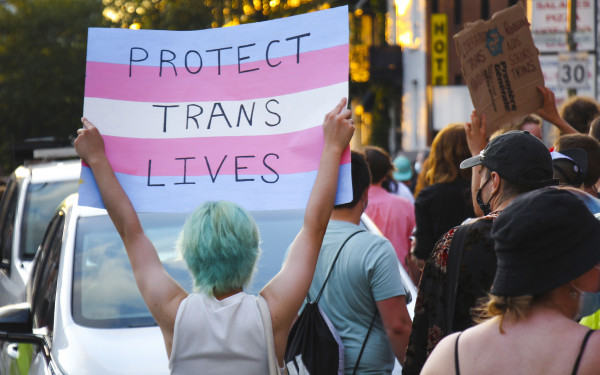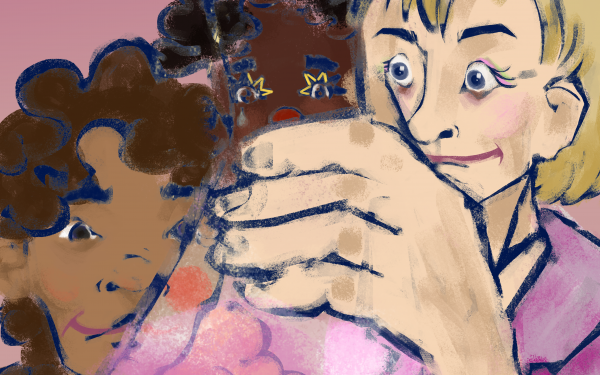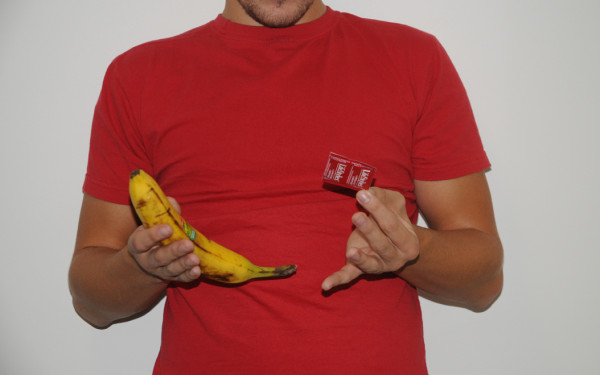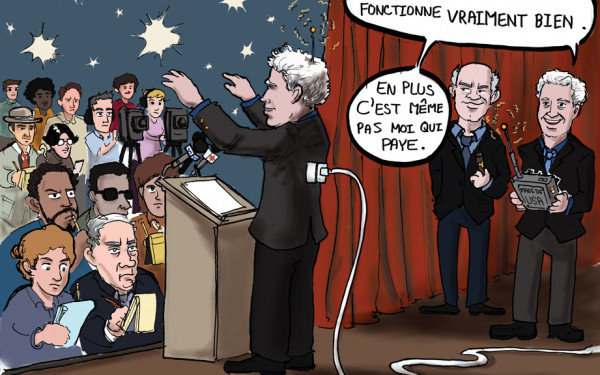Swipe right on sex education
Meet Felicia Gisondi, a university student who decided to take sex education into her own hands
Just days after her parents dropped her off at McGill University, 18-year-old Felicia Gisondi downloaded Tinder. She swiped right on a tall, attractive, 24-year-old man and soon found herself curled up next to him in bed.
They started a sexual relationship, which was all steamy and pleasureful until Gisondi learned that her partner was not being faithful and continuously having sex with other people. Two months later she discovered she had a yeast infection and bacterial vaginosis. Gisondi sought out treatment right away and even after her infection was gone, she was left with the alarming realization that she was utterly uneducated about certain parts of her own body.
This inspired her to create Sex and Self, an organization that aims to provide comprehensive sexual education seminars, workshops, events, and resources to students across Canada.
Gisondi was raised in a Roman Catholic household and attended a Roman Catholic high school. She always wanted a simple life: to go to university, receive her undergraduate degree, become a teacher, find a husband (to whom she would lose her virginity), have a happy monogamous marriage, and attend church on the weekends.
“I just thought that was the right thing to do for me to be the best type of woman. [I had been exposed to] a lot of misogyny, a lot of internalized abstinence ideals,” she said.
She realized she was not the only one who had this mindset when she started university. Many of her peers had similar experiences of the high school curriculum failing to provide relevant sex education.
“I didn't learn where my uterus was in my high school curriculum, I learned it by myself reading The Vagina Bible,” Gisondi said, referring to the book by Dr. Jen Gunter.
2021 graduate of John Rennie High School in Pointe-Claire, Emilie Bernardi, also felt the sex education she received was insufficient.
“All we were taught were the methods of contraception and we skimmed over the reproductive systems, but nothing further. [There was] no explanation on what to expect or that people like different things,” Bernardi explained.
Dr. Laurie Betito, the president of The Sexual Health Network of Quebec agrees that high school sex education is leaving many students with unanswered questions. According to Betito, many young adults are unaware of what is normal and what is not in terms of their bodies, leading them to confusion and discomfort.
“I didn’t learn where my uterus was in my high school curriculum, I learned it by myself reading The Vagina Bible.” — Felicia Gisondi
“The less education you have, the more likely you are to get [a sexually transmitted infection], the more likely you are to have an unwanted pregnancy, the more likely you are to live with discomfort for longer,” said Betito.
In early 2019, when Gisondi learned that McGill was accepting applications for the Mary H. Brown Endowment Fund—a grant that aims to support projects that strive to improve the health and well-being of McGill students—she was inspired. Gisondi sat in front of her computer and typed up a long and very emotional proposal and pitched her idea for an organization called, Ladies, Let’s Talk About Sex.
A couple of months later, she received a congratulatory email. Her project had received a grant of $750. She immediately began to recruit other students to help launch the organization.
Gisondi wanted her fledgling organization to cater to vulva owners who identified as female on campus since that is what she wanted to learn about most. As the organization grew into a wider community, however, the name was changed to Sex and Self. This change reflected the organization’s efforts to promote sex positivity and sex education for students of all genders and sexualities.
Sex and Self primarily organizes seminars where experts, advocates, or medical prodessionals discuss topics regarding sexual relationships and health. They are now expanding to provide student-led workshops as well. Gisondi makes it a priority to make these seminars and workshops as accessible to students as possible, whether they are held on Zoom or with small groups in person. For example, a recent workshop titled “The Sex Ed You Never Had” was a crash course on science and sex positive-based sex education that included several different experts and advocates.
“[The goal is] to make sure [students] are well-equipped with all of the inclusive, science-based information that they need to move forward in their sexual endeavours,” she said.
Elyssa Bush, a non-binary McGill student, discovered Sex and Self on Instagram in their first year.. They inquired about becoming involved with the organization.
Bush said they will never forget their first meeting Zoom meeting with Sex and Self. The team leaders opened the meeting by asking everyone to introduce themselves by stating their name, pronouns, and what sex toy they would be if they were one. Bush and the team giggled, they looked at their computer screen and felt they could trust all team members instantly.
Similar to Gisondi, Bush grew up in a Catholic household where sex was not talked about and attended a Catholic high school. As a queer and non-binary person, they could not relate to the minimal sex education they were taught.
“I think being with this organization has really helped me dismantle my beliefs around sex in a really positive way, pushing aside ideas of abstinence being key,” they said.
“[The goal is] to make sure [students] are well-equipped with all of the inclusive, science-based information that they need to move forward in their sexual endeavours.” — Felicia Gisondi
Canada’s high school curricula baffles Gisondi. “We learn about our esophagus but why are we not learning about our clitoris,” she said.
In fall 2020, Sex and Self launched an initiative called Bodies A to Z where they visited seven Montreal high schools to provide comprehensive and accessible sex education. Bodies A to Z aims to empower and educate the youth of all genders and sexualities by providing lesson plans and workshops. Gisondi felt that part of the issue with sex education in high schools was that students may not feel comfortable asking teachers questions regarding sex, since their instructors tend to be significantly older than the students and might have outdated views regarding sexuality.
“The beautiful thing about our program is that it is young people speaking to young people,” Gisondi said.
As Gisondi tries to help educate other students, she too is constantly learning more about sexuality.
“I will never be done learning, especially in this realm because things are changing all the time,” she said.
One area specifically that she would still like to learn more about is how culture and society affect peoples’ attitudes towards sex.
“As a woman coming from a lot of privileges, especially being white, I am constantly trying to challenge myself and make sure that equity is upheld in our organization,” she said. “Sexual health and sexual reproductive justice is such an intersectional issue that affects so many people, specifically minorities.”
At times Gisondi has been apprehensive about trusting people she does not know well to implement a Sex and Self team at other universities. She is grateful to have been able to work closely with the Concordia University Sex and Self chapter president, Gabriela Kennedy, to maintain the original vision for the organization. She hopes that by winter 2022, the organization will be implemented at a couple more schools.
“Taking [Sex and Self] from east to west, north to south, as far as we can go with the organization; that would be the dream,” Gisondi said.
This article originally appeared in The Body Issue, published February 1, 2022.







